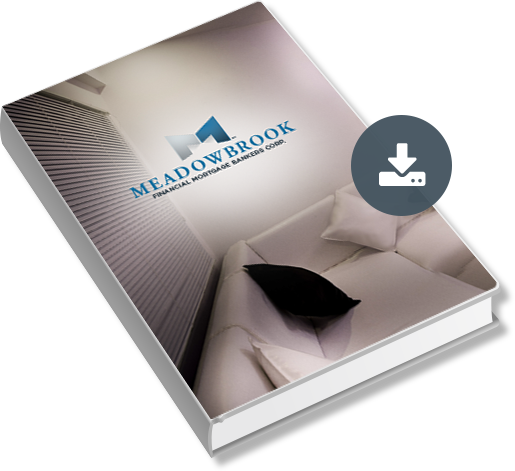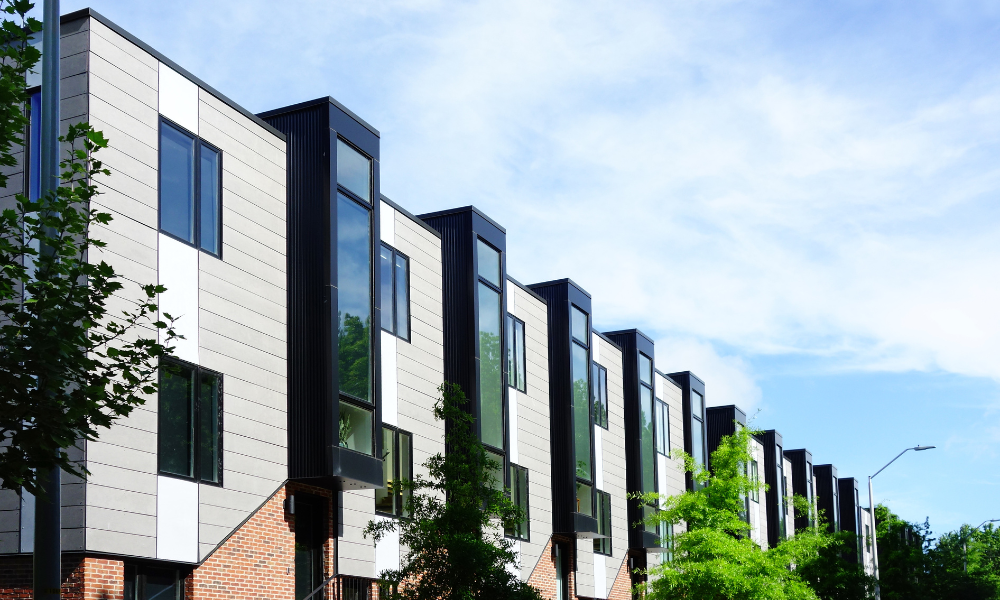Search Blog Posts by Blog Topic
Are You Better Off As a Renter or a Homeowner?
July 25, 2024
It is common for people who have started families or have reached a certain age to feel the pressure of buying a home. While expectations can come from different quarters, basing a decision as big as buying a home is not something you would want to rush into. After all, living on rent does come with its share of pros. So, is it smarter to buy a house or rent?
Is It Better Financially to Rent or Buy a House?
One of the biggest arguments in favor of home buying is that the property serves as an investment. However, it is not uncommon for people to miscalculate or overestimate their return on investment (ROI). Besides, homes don’t necessarily work as appreciating assets all of the time.
According to Robert Shiller, a Nobel Prize winner and a Yale economist, real inflation-corrected prices of homes from 1890 to 1990 remained “virtually unchanged”. Analysis of Shiller’s data revealed that home prices had grown at a compound annual rate of as little as 0.3%, adjusted for inflation, during a 100-year period.
When you decide to buy a home, you mustn’t put all your financial eggs in one basket. This requires that you hang on to some of your investable assets. It is also crucial that you look at your purchase as a right to housing instead of a long-term investment that will yield great dividends.
According to most experts, housing may work well as an investment, but not as a great investment. As a result, if your main aim of buying a home is an investment, you might be better off putting your money in a well-balanced and diversified portfolio of stocks and bonds, and continue living on rent.
Looking to Purchase a Home on Long IslandContact Us
The Cons of Buying a Home
Buying a home comes with its shares of pitfall and limitations, which you should know about at the very onset. This way, you may find it easy to determine if you are better off as a renter or a homeowner and prepare yourself to avoid or overcome any nasty surprises down the road.
Moving Out Is Not as Easy
What is an advantage of renting your residence instead of owning it? For starters, when you live on rent, you may choose to move out when the contract expires or by providing the required notice period. This gives you the freedom to move from one neighborhood to another, and even relocate to another city.
When you buy a house, moving out becomes harder because you may not find a suitable buyer when you want. Alternatively, you might end up selling your home for less than it is worth simply because you are in a hurry.
If you think you might have to relocate because of work or because of family obligations, it might be in your best interest to continue living on rent. Ideally, you should consider buying a home if you plan to live in it for at least five years.
You Need to Make a Down Payment
Depending on the type of home loan you seek, your credit score, and the mortgage provider you select, you typically need to make a down payment of 5% to 20% of the home’s selling price. In addition, the standard procedure is that you need to pay this amount in one go, before the lender disburses the loan amount.
Making a down payment that is as large as financially viable for you is ideally the best way forward. This is because a larger down payment reduces the amount you end up paying as interest in the long run. However, this also requires that you come up with a significant amount of cash at one time. As a renter, you have a lot less financial responsibility.
The Lure of a Mortgage
If you, like many others, are wondering, ‘Is it worth paying rent or mortgage?” consider this aspect carefully. You do not have to buy a house just because you qualify for a mortgage, and this is a mistake some people end up making. Before you buy a home, take time to look at your spending habits and existing debt carefully.
If you have significant debt, you might want to reduce your financial burden before you think about getting a home loan. This is because not paying your mortgage in a timely manner will have an adverse effect on your creditworthiness. However, if you have a low debt-to-income (DTI) ratio, you might consider going the homeownership way.
The Risk of Depreciation
One question that many prospective homebuyers have is, “What is a financial risk of being a homeowner?” While it is common for people to expect their homes to appreciate in value over time, this is not always the case, especially if you do not prepare yourself for the long haul.
If you wish to sell a house when its value is down, there is a good chance that you will have to settle for less than its original price. This can also be a problem if you wish to refinance your mortgage through a different lender because you might not qualify for the amount you expect. As a result, think hard about buying a house if you don’t plan to live in it for at least five years.
The Risk of Foreclosure
Another financial risk of being a homeowner is that if you don’t plan your finances right, or if you experience a monetary setback, you might not be able to keep up with your mortgage payments. In such a scenario, you risk losing your house to foreclosure. While a foreclosure might leave you financially drained, it also has a significant negative impact on your creditworthiness.
Ongoing Costs
When preparing to buy a home, think about the long-term costs that come in the form of home repairs and renovations. If you are stretching your budget to buy a home, keeping up with the ongoing home maintenance costs might seem challenging. In addition, if you do not spend much time in the house you purchase, you might need to spend even more to hire a caretaker.
Benefits of Buying a Home
If you feel you are emotionally and financially ready and have determined that owning is actually better than renting, you may get the process underway and look forward to the benefits that home ownership has to offer.
Spending Less
While buying a home might seem expensive, it can turn out to be more affordable than renting in the long run. Depending on where you live, you might even end up spending less each month if you buy an affordable home and get a USDA loan or a VA loan. What also helps with these loans is that you do not have to worry about making a big down payment.
However, if you’re wondering whether it is more cost-effective to buy or rent, bear in mind that where you buy a home and the property in question has a bearing on this factor. This is because, according to the February 2024 Rental Report by Realtor, it is more affordable to rent a starter (0-to-2-bedroom) home than to buy one in the country’s top 50 metros.
Looking to Purchase a Home on Long IslandContact Us
Building Equity
When you buy a home with the long term in mind, you work in building equity. When you pay rent, it is money you will never get back. Making monthly mortgage payments, on the other hand, helps you build equity. As the amount you owe toward your loan reduces, the equity you hold in your home increases.
If you wish to sell your home at a later stage, home improvements can increase its value and the equity you hold, and you still may be able to recoup some of the money spent when you sell or refinance.
Getting a Tax Break
During the initial years of repaying your mortgage, most of your payments go toward paying off the interest. The government allows you to deduct a percentage of the amount you pay as interest when you file your tax returns. While this might not seem like much, it does add up to a tidy sum over the years.
Increased Stability
One of the top answers to, “What is a benefit of owning a home instead of renting one?” comes in the form of stability. After all, a big pro of owning a house and living in it is that you do not have to worry about looking for a new place because your existing landlord wants you to move out. When you live in a house that you call your own, you can look forward to a set neighborhood and don’t have to worry about changing schools or hospitals.
Increased Flexibility
Living in a rented house does not provide the same flexibility that owning one does. For instance, if you want to modify your home’s kitchen or bathroom, you can do so as and when you want without seeking your landlord’s permission. Remodeling the interior of your home, carrying out a landscaping project, or using wallpapers of your liking is easy to do when you own your home.
 Should I Rent or Buy a House?
Should I Rent or Buy a House?
Finding out if you are ready to buy a home is not difficult, and all you need to do is answer some basic questions. So, what details will you consider as you decide to rent or buy a home?
- Do you have money for the down payment? You should ideally be able to pay around 20% of the home’s value as down payment. However, there are some types of loans that require lower down payments.
- Can you keep up with the mortgage payments? Repayments toward fixed-rate mortgages do not change over the entire loan term, which gives you an easy way to predict if you will be able to keep up with payments in the future. With an adjustable-rate mortgage, you need to factor in that your monthly repayments may increase at almost any time.
- Are you secure in your job? If you have job security and feel that you will stick to your existing job or will find a new one easily, you may consider buying a home. A steady source of income will ensure that you keep making your mortgage repayments on time while continuing to build equity in your house. If you have switched jobs recently or plan to do so soon, you might want to hold on to your home-buying plan for some time.
- How good is your credit score? Your creditworthiness plays an important role in your ability to secure a loan and get a favorable interest rate. For instance, while an excellent credit score typically results in a competitive interest rate, a low credit score could result in you paying a noticeably higher interest tare. Typically, a credit score of over 720 will get you the best rates.
- Are you willing to fix your credit score? If you have poor creditworthiness, you might want to improve your credit score before applying for a mortgage. You may do this by making all your repayments on time, reducing your debt, getting inaccuracies in your credit report fixed, and avoiding getting new forms of credit.
- How favorable is the credit and real estate market? Take a look at existing interest rates and consider expert opinion surrounding whether real estate prices might rise or fall in the future. For context, consider these numbers released by Freddie Mac. Average interest rates for 30-year fixed mortgages dropped from around 7.5% in October 2023 to 6.77% as of the week ending July 17, 2024.
- Are you committed to staying put? Given all the costs associated with buying a home, you must commit to staying in it for a few years. In your plan to move out in the first couple of years and wish to sell the house, you might end up losing a tidy sum. Bear in mind that selling the house also comes with its fair share of costs. So, is owning actually better than renting? Typically, only if you plan to stay put for five or more years.
Conclusion
The short answer to, “Are you better off as a renter or a homeowner?” depends on your individual circumstances. If you are unsure about your financial situation or plan to relocate in the near future, you might be better off living on rent. On the other hand, if you have your finances in order and plan to live in the same place for a few years, buying a home might work well for you. If you do plan to buy a home, looking for a suitable mortgage lender and getting pre-qualified before you begin your search is the ideal way forward.
Ready To Get Started?
Fill out the form below and a mortgage professional will get back to you shortly.

First Time Homebuyer’s Guide
Considering homeownership but not sure where to begin? The Meadowbrook Financial Mortgage Bankers Corp. guide to home buying will make the process easy all in one packet.
Recent Articles

An In-Depth Condo Buying Guide
2 July, 2025One reason why many first-time homebuyers prefer condos over single-family homes is that they are typically more affordable and give them the means to start…

Should You Buy an Under-Construction, New Build, or…
18 June, 2025The dream of owning a home often comes with having to make an array of decisions, and perhaps none is more crucial than choosing the…

How Do Pets Influence Homebuying?
1 May, 2025Adding a furry friend to your family can bring so much joy to your life. Whether it’s a dog, cat, bunny, or other, they’re sure…



